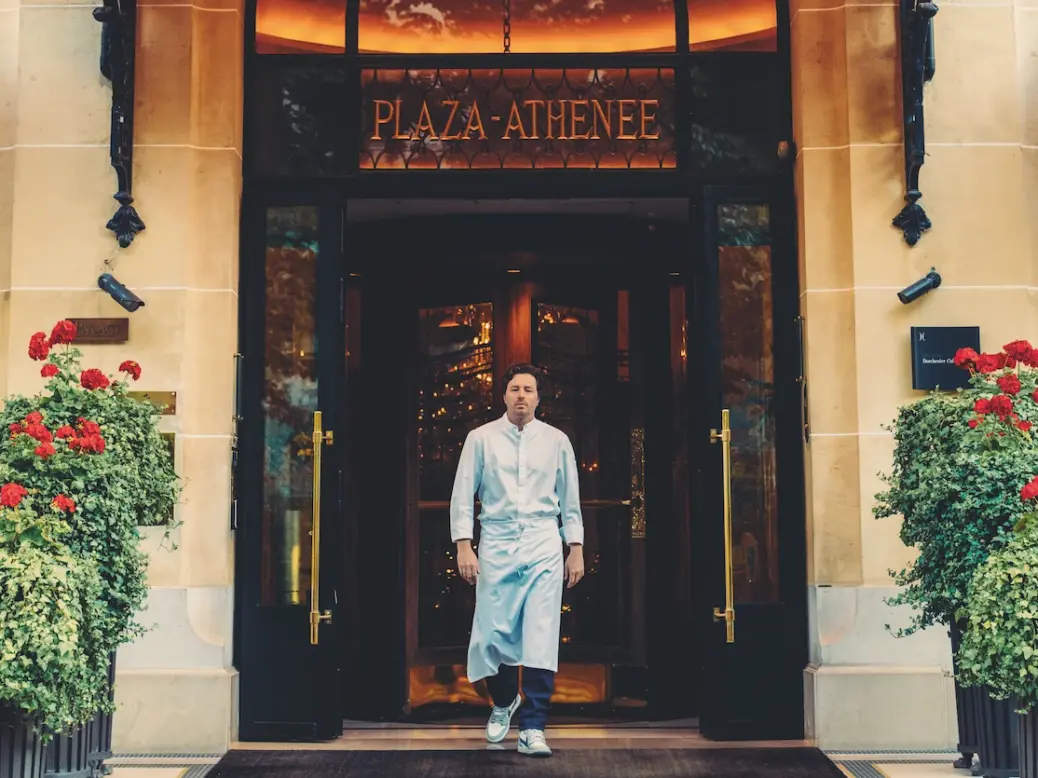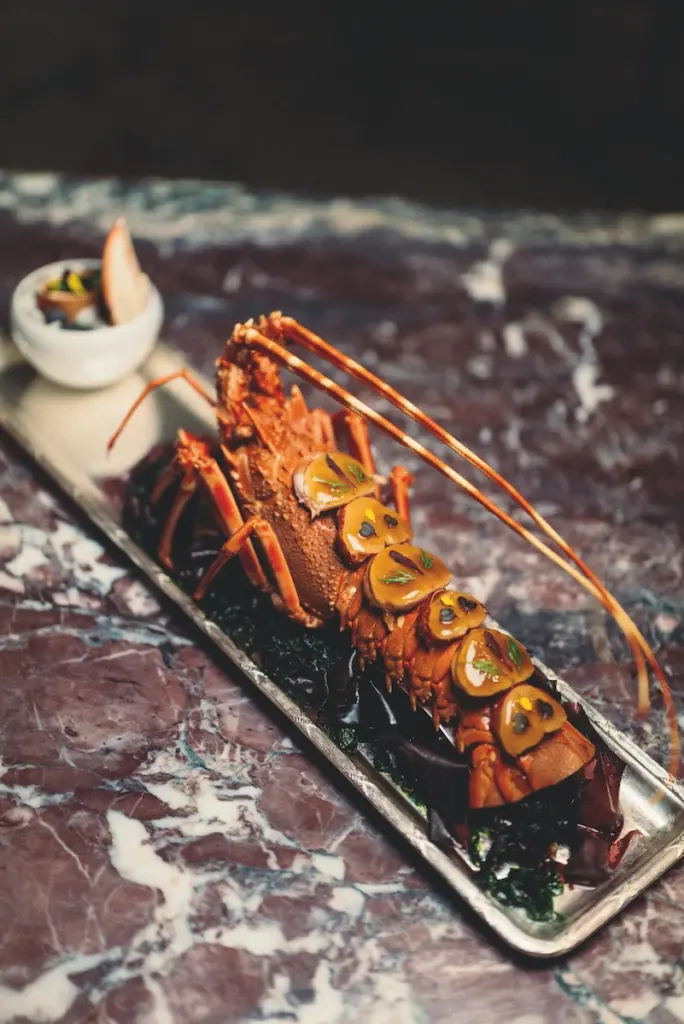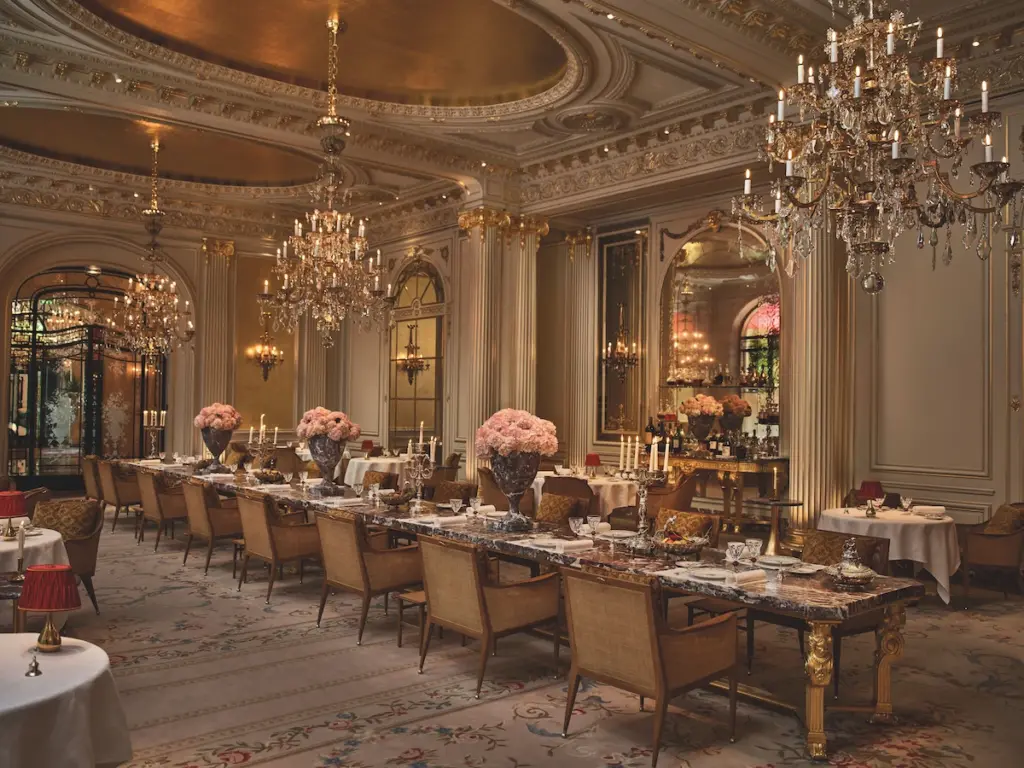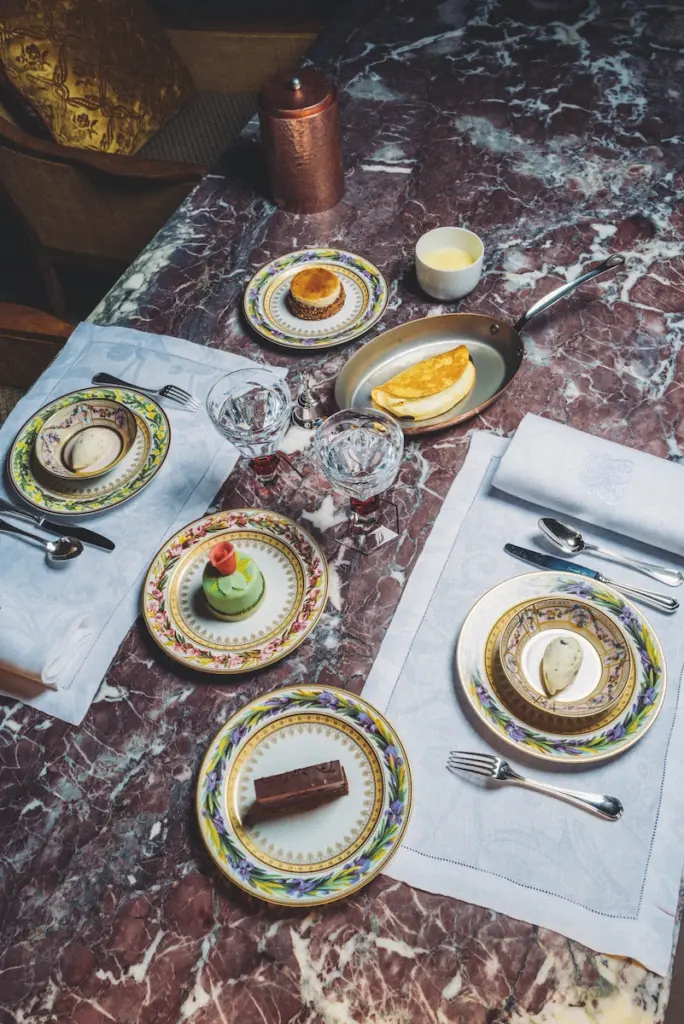
Who would take over from Alain Ducasse – the chef who’s received more Michelin stars than anyone in the world – at the helm of the spectacular, storied, Versailles-like Plaza Athénée?
As soon as Ducasse’s departure was announced in May 2021, that was the question on every Parisian food critic’s lips. A month later, the answer was revealed: step forward, Jean Imbert.
To say the reception to Imbert’s appointment was mixed is something of an understatement. Noted food critic Francois-Régis Gaudry said that ‘he has neither the CV, nor the experience for such a place’ and described Imbert’s propensity for social media and celebrity friends as ‘extra culinary’.
Le Figaro’s Emmanuel Rubin thought the new man in charge was ‘unworthy’ of the job bestowed upon him. Franck Pinay-Rabaroust, the founder of food magazine Atabula, was less than complimentary as well.

‘At best it’s surprising. At worst, it’s worrying,’ he said. ‘He’s broken all the codes. For the first time, we are putting a chef into a palace who doesn’t have any stars, who hasn’t proved himself with other big chefs.’
Not exactly the response one would have hoped for. But then, barely nine weeks after the restaurant reopened under its new guise – Jean Imbert au Plaza Athénée, or ‘JIPA’ – was awarded a Michelin star. And things started to change. Le Figaro’s Rubin recanted. Compliments started to pour in from elsewhere. ‘The energy level is just off the charts,’ said Alec Lobrano, a food writer based in Paris. ‘It’s so freaking smart and sexy without being foppish.’
[See also: Harrods to open 250-member private club for Shanghai’s wealthy]
Upon entering the restaurant, which I visited earlier this year, you are struck by its theatricality. What appears to be a single vast slab of reddish marble runs down the centre of the dining room, looking at once like a banqueting table and a catwalk. In keeping with the Plaza’s characteristic opulence, there are multi-tiered chandeliers, columns and gold – lots and lots of gold.
The food chimes with its setting too, with dishes inspired by the likes of Escoffier and Carême. The lobster Bellevue, covered with chunks of flesh in glistening multi-coloured aspic has become the restaurant’s signature dish, but almost everything is remarkable, surprising, fantastical.

Some weeks later, when I speak with Imbert over a video call, he is sanguine: the kind of pressure and scrutiny he faced before taking over this hallowed hall of Parisian gastronomy is par for the course. ‘It’s part of the job, you know,’ he says, speaking quickly, with confidence, and occasionally running a hand through his thick crop of auburn hair.
‘If you don’t want anything hostile, you stay at your home and you do nothing and it’s okay,’ he says. ‘You can’t have all of the good and none of the bad.’ If you want to take over from Alain Ducasse, he adds, ‘you have to be ready’.
Then he stops himself, engaging in a moment of introspection. ‘I don’t know if I was ready. I didn’t even ask myself: am I [ready] or am I not? I just follow my dream.’
[See also: World’s most expensive whiskies]
This was a dream 20 years in the making, says Imbert. There have been jobs that he was offered that he didn’t take because he thought there was a chance they might interfere with his path to the Plaza. An old colleague used to tease him, joking that ‘one day’ Imbert would be head chef at the Plaza. Now that day has arrived.

In some respects the hostility has helped, Imbert thinks. If he was a footballer for Manchester United, he says, he would love to play away at Arsenal. ‘I love this kind of atmosphere, where nobody expects you are eventually going to be a success… this is where I am best.’
That’s not to say some of the commentary didn’t rankle with him – particularly the sense that his victory on Top Chef, a cooking programme on French television, and his prominence on Instagram seem to have given him something he didn’t earn. Imbert is now 41; by the time he won Top Chef in 2012 he’d had his own restaurant for around a decade, having opened it as a 22-year-old. ‘When I opened my first restaurant, Facebook didn’t even exist.
[See also: These are the best new restaurants and fine dining experiences in Monaco]
‘I’m not an Instagram guy. I’m not a TV guy. I’m not a Michelin guy. I’m just me. I’m just the chef of the Plaza today. You know how beautiful it is for a guy – I’m born in the banlieues outside of Paris – to take over Plaza and then they give us a star nine weeks after opening?’
Not that laurels and garlands are what he does it for. He would have been happy either way. ‘You are not doing a movie to win an Oscar, you are not doing music to win a Grammy award,’ he says. ‘You have to focus on the client first, on the project you want to make.’
If JIPA is the jewel in Imbert’s crown, there are certainly other parts of his career that have glittered. Notably, he has teamed up with Cheval Blanc, part of Bernard Arnault’s LVMH empire, in St Barth, and collaborated with musician Pharrell Williams on two restaurants (Swan in Miami and ToShare in St Tropez).
[See also: Inside the world of billionaire wedding planning]
Is there something that unites his approach in all these places? An essence of an Imbert restaurant, perhaps? ‘Authenticity,’ he answers immediately, explaining that, to him, it translates as a marriage between a place, its history and the food that is served. ‘Food is not globalised.’
The team is crucial too, he adds. ‘Maybe the third thing is creativity.’
For Imbert, being a chef is not just a question of producing the best dish. ‘It’s putting everything together: the tableware, the design of the menu, the lighting, the music – every, every detail. I love to be like [a director] making a movie, where he’s designing everything in his head. I want to project something to where the client is sitting. You understand: all the details.’
So, I wonder, 18 months on from the opening of JIPA, what could be next? ‘I never make a career plan in my life,’ says Imbert, breezily, believably. ‘If you [were to offer] me 50 restaurants and it’s big money, but I don’t like it and it’s not my dream, I won’t do it. But, you know, sometimes the dream arrives.
This piece first appeared in issue 88 of Spear’s, available now. Click here to buy a copy and subscribe






